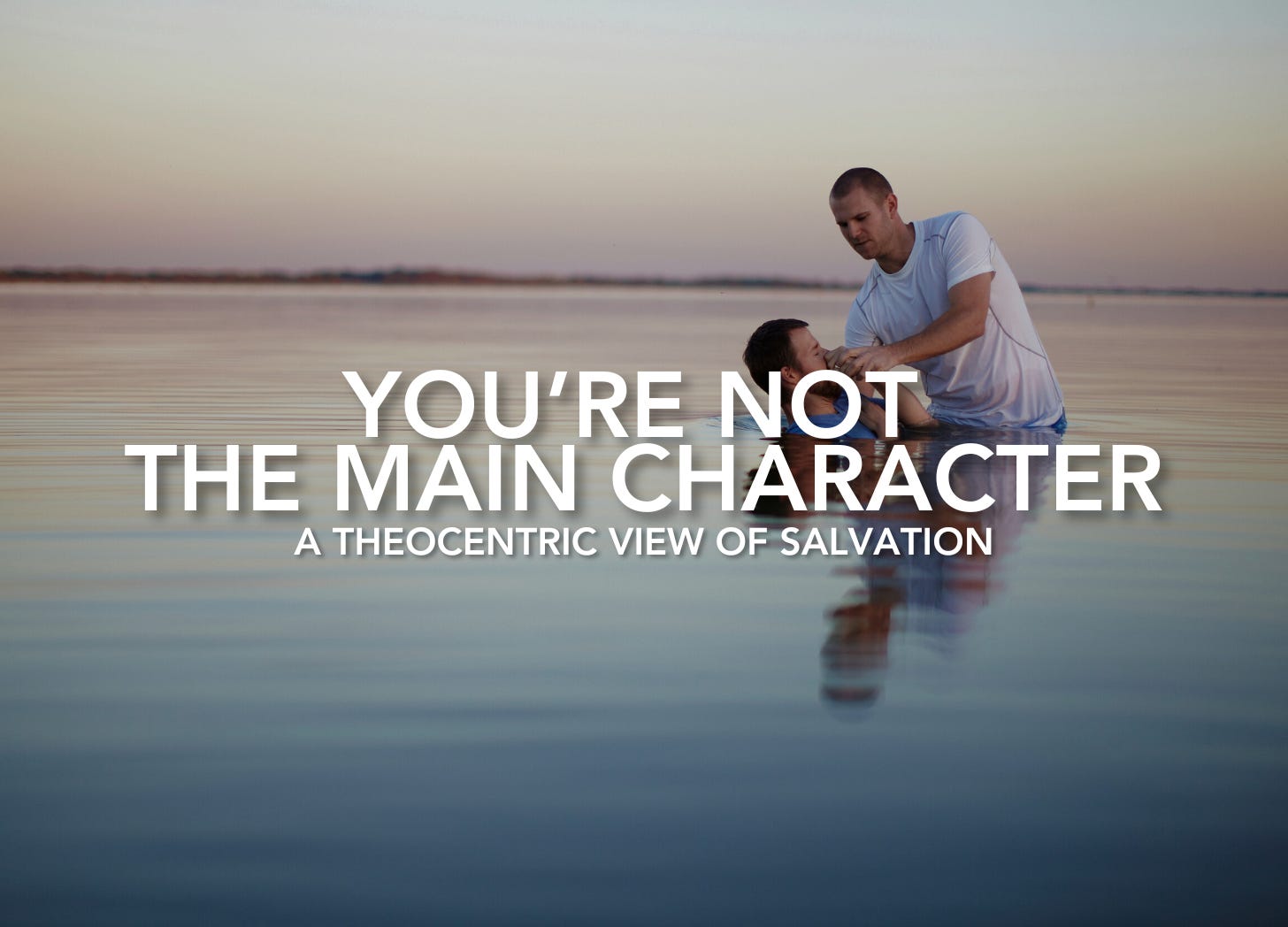We have a tendency to consider salvation primarily from our personal private perspective. We take into consideration how we “get saved,” what we’re imagined to do after we are saved, and whether or not or not we are able to lose our salvation. These aren’t mistaken or dangerous issues, however I’d prefer to counsel that they need to be secondary.
I want to counsel that we transfer from an anthropocentric (human-centered) view to a theocentric (God-centered) view of salvation. In different phrases, after we take into consideration salvation, we should always give it some thought first from God’s perspective. We must always shift our major issues from ourselves to what God has completed, is doing, and can do to avoid wasting folks; and, simply as importantly, why God saves folks.
Sadly, we’re so used to seeing ourselves as the primary characters, it could appear unusual or pointless to shift to a theocentric view. So, please permit me as an example. Think about {that a} billionaire philanthropist created a charitable group. On daily basis, new folks had been added to his group. Once they had been added, all of their private money owed had been forgiven they usually grew to become recruits in carrying out the founder’s mission. In truth, greater than merely recruits, they grew to become a part of the founder’s household and heirs to his huge fortune.
Sadly, over time, the world grew to become so conversant in the story of the founder and his present that their focus began shifting. As an alternative of it being a narrative concerning the founder’s generosity and mission, folks began specializing in how they may personally get in on the advantages. Their major questions concerning the founder had been primarily self-seeking and self-interested, “What do I’ve to do to develop into a part of the founder’s group?” and, “How typically will he let me skip work earlier than he fires me?”
Do you see the issue? In the case of the story of salvation, now we have made it primarily a narrative about ourselves, somewhat than a narrative about God’s generosity and mission.
This shift in perspective has numerous sensible implications. First, after we give attention to ourselves, we are likely to waver between self-loathing and delight. We fear we haven’t accurately fulfilled all the necessities to be saved, however we additionally flip round and congratulate ourselves on being higher than different folks. In different phrases, after we make salvation about us, we develop into obsessive about ourselves.
Once more, let me be clear, it isn’t that questions on what we should do, or should not do, are dangerous questions. It’s merely that, because it pertains to salvation, these ought to by no means be our major focus. You and I aren’t large enough, robust sufficient, good sufficient, or ok to bear the load of being the point of interest of this story.
However, after we focus at first on God, the story of salvation motivates us to obsess about him, somewhat than ourselves. God can actually bear the load of being the primary character within the story. That is how Scripture appears to border the dialog. So, if we need to rightly perceive Scripture, we’ll respect the relative weight the authors assign to every matter.
Think about the place Paul begins the dialog about salvation and the place he locations the emphasis:
“Blessed be the God and Father of our Lord Jesus Christ, who has blessed us in Christ with each non secular blessing within the heavenly locations, at the same time as he selected us in him earlier than the inspiration of the world, that we must be holy and innocent earlier than him. In love he predestined us for adoption to himself as sons by Jesus Christ, in keeping with the aim of his will, to the reward of his superb grace, with which he has blessed us within the Beloved. In him now we have redemption by his blood, the forgiveness of our trespasses, in keeping with the riches of his grace, which he lavished upon us, in all knowledge and perception making recognized to us the thriller of his will, in keeping with his goal, which he set forth in Christ as a plan for the fullness of time, to unite all issues in him, issues in heaven and issues on earth” (Ephesians 1:3–10, ESV).
Do you see how Paul focuses on God’s selection, love, goal, grace, redemption, forgiveness, will, and plan? God is the topic, we’re the direct object of the dialog.
That is the primary publish in a brand new sequence about salvation. I need to suppose by numerous features of salvation with a theocentric view. I consider it can assist all of us acquire a greater appreciation of what the Scriptures imply once they communicate of “salvation.” I additionally hope it can encourage us to reply extra enthusiastically to the message of salvation.
Simply because we transfer our response to a secondary place within the dialog doesn’t imply it turns into unimportant. Our devoted and obedient response to God’s work is vital, however it’s a response; by definition, a response is a secondary motion.
I really like you and God loves you,
Wes McAdams


